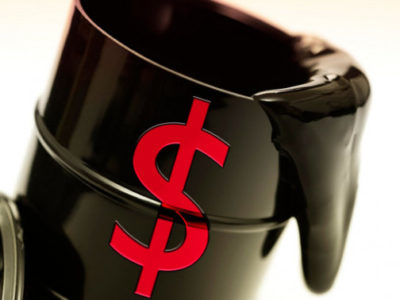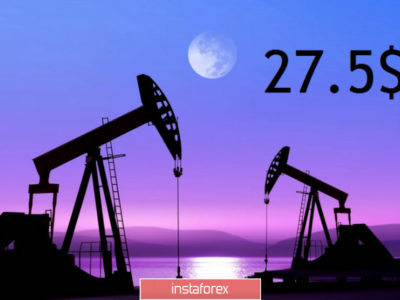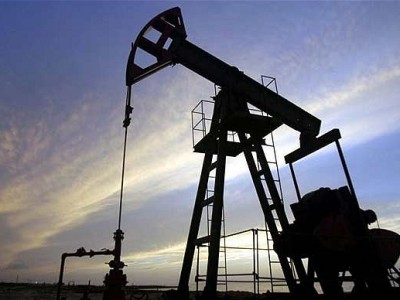Oil Prices Spike as Investors React to Downing of Russian Plane
The price of oil spiked on Tuesday after Turkey shot down a Russian fighter jet for allegedly violating Turkish airspace, sending investors into a panic about a growing geopolitical crisis between Russia and NATO.
Background
Mideast tensions reached a boiling point on Tuesday after Turkish forces shot down a Russian warplane near the Syrian border. One of the pilots was killed by ground fire after he parachuted from the plane. Another Russian marine was reportedly killed in a rescue mission. Both Russian troops were killed by Western-backed militants on the ground in Syria.
Russian President Vladimir Putin warned of grave consequences for Turkey, which is also a member of the North Atlantic Treaty Organization (NATO), an intergovernmental military alliance consisting mainly of North American and Western European countries.
On Wednesday Russia said it would deploy S-400 defense missile systems in Syria to deter any future air strike by Turkey, which is supporting opposition groups trying to oust Syrian President Bashar al-Assad. Russia, which supports Assad, launched a military campaign in Syria on September 30 targeting ISIS militants.
Why did oil prices spike?
The West Texas Intermediate (WTI) benchmark for US crude climbed nearly 3 percent on Tuesday, its biggest one-day rally in three weeks. Global benchmark Brent crude also rose nearly 3 percent.
To understand why oil prices spiked, it’s important to remember that Middle Eastern countries are major energy producers. Countries like Saudi Arabia, United Arab Emirates, Iran, Iraq and Kuwait collectively produce more than 24 million barrels per day.[1] Geopolitical concerns – and in this case, fears about a Russia-Turkey standoff in Syria – raised fears of a supply disruption in the region.
Investors are constantly worried that Mideast volatility could disrupt the flow of energy from the region, which has significant implications for a global economy that is still heavily reliant on oil. That’s why news of violence in or near any major Middle Eastern oil-producing country may spur price gains.[2] This remains true even in the current period of cheap oil. Saudi Arabia’s involvement in Yemen, violence in Syria, unrest in Egypt and ISIS military gains in Iraq have all pushed prices higher at some point over the past 12 months.
Will oil prices continue to rise?
Not only will oil prices retreat almost as quickly as they rose, they will likely continue lower for the rest of the year. Global investors are extremely bearish on oil, mostly because of the underlying supply/demand characteristics of the market. A combination of declining demand from China, peak OPEC production, a US shale boom and more efficient technologies have resulted in a global supply glut of oil. That means supply is outstripping demand and will continue to do so for the foreseeable future.
As a result of these market dynamics, oil prices have plunged by around 60% since June 2014. According to US investment bank Goldman Sachs, crude prices may fall to a low of $20 a barrel in a doomsday scenario. However, most prognosticators expect US crude prices to average around $45 a barrel next year. Brent’s premium to WTI is expected to hold at less than $5.[3]
Energy companies in North America and Western Europe have been hit especially hard by the oil price collapse. The S&P 500’s energy component has declined more than 22% over the past 12 months. [4] The short-term outlook for these companies remains grim and stock prices will struggle for gains now that the US Federal Reserve has signaled it will raise interest rates soon.
Middle Eastern countries are being hit just as hard, according to a recent report from the International Monetary Fund.
“If you add it up for all the six countries over the next five years it is a [budget] deficit of $700 billion,” said Masood Ahmed, director of the IMF’s Middle East and Central Asia unit. “Look at the last five years when oil prices were going up and the same group of countries were running a budget surplus together of over $600 billion. So it is a huge fiscal swing.”[5]
[1] US Energy Information Administration (2014). Total Petroleum and Other Liquids Production.
[2] Nicole Friedman (November 24, 2015). “Oil Prices Rise After Turkey Shoots Down Russian Jet Fighter.” The Wall Street Journal.
[3] Ben Sharples (September 11, 2015). “How Low Can Oil Go? Goldman Says $20 a Barrel Is a Possibility.” Bloomberg.
[4] Fidelity Investments. S&P 500 Sectors & Industries Overview.
[5] CNN Money. (October 21, 2015). “Middle East Feels the pain of oil price collapse and conflict.” CNN.
The post Oil Prices Spike as Investors React to Downing of Russian Plane appeared first on Forex.Info.
Source:: Oil Prices Spike as Investors React to Downing of Russian Plane













